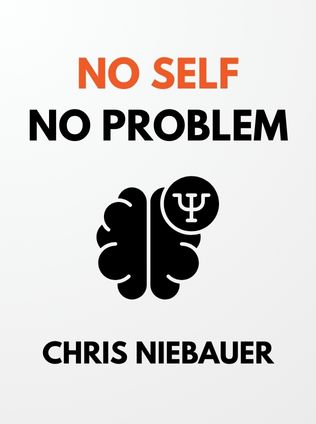
No Self, No Problem
How Neuropsychology Is Catching Up to Buddhism (The No Self Wisdom Series)
By Chris Niebauer
Published 09/2019
About the Author
Chris Niebauer is a distinguished neuroscientist and professor who earned his Ph.D. in Neuropsychology. He currently teaches at Slippery Rock University in Pennsylvania, where his research focuses on the intersection of cognitive neuroscience and Eastern philosophy, particularly Buddhism. Niebauer's unique approach to these subjects has garnered significant attention, as he blends scientific inquiry with ancient philosophical teachings to challenge the very concept of the self.
Niebauer’s academic journey has been deeply influenced by his interest in how the brain constructs reality, especially the role of the left and right hemispheres. His research delves into the cognitive processes that create our sense of identity, or the "self," and how these processes align with or contradict Eastern teachings on the nature of the self. Through his work, Niebauer aims to show that the self, as most people understand it, is an illusion—a narrative created by the brain rather than a fixed, unchanging entity.
"No Self, No Problem" is a culmination of Niebauer’s years of research and teaching. It is a book that challenges readers to reconsider their deepest assumptions about who they are. By drawing on both modern neuroscience and ancient wisdom, Niebauer offers a path to understanding the true nature of the self and how this understanding can lead to a more peaceful and fulfilling life. His work is not just academic; it is deeply personal, aiming to help individuals break free from the constraints of a false self and discover a new way of being in the world.
Main Idea
"No Self, No Problem" is a revolutionary exploration of the concept of the self, positing that the self as we commonly understand it is an illusion created by the brain. Niebauer argues that this illusion is primarily constructed by the left hemisphere of the brain, which uses language and pattern recognition to create a coherent narrative that we then identify as "me." However, this narrative is not a true reflection of a permanent self but rather a constantly changing story that the brain constructs to make sense of our experiences.
The book’s main idea is that by understanding the illusory nature of the self, we can reduce the suffering that comes from clinging to this false identity. Niebauer draws on both neuroscience and Eastern philosophy to show that the self is not a stable, enduring entity but a fluid, ever-changing construct. By loosening our attachment to this narrative self, we can live more fully in the present moment, free from the anxieties and desires that come from trying to protect and enhance an illusory self.
Table of Contents
- What Do We Believe About the Self?
- Why Do We Believe in the Self If It Isn’t Real?
- How Can You Change Your Perception of Yourself?
What Do We Believe About the Self?
In "No Self, No Problem," Niebauer begins by examining the fundamental beliefs that different cultures hold about the self. He contrasts the Western perspective, which sees the self as a continuous, thinking entity, with the Eastern view, particularly that of Buddhism, which regards the self as an illusion. This contrast sets the stage for the book’s central argument: that the self, as most people understand it, is not a real, stable entity but rather a narrative created by the brain.
Sign up for FREE and get access to 1,400+ books summaries.
You May Also Like
The Subtle Art of Not Giving a F*ck
A Counterintuitive Approach to Living a Good Life
By Mark MansonHow To Win Friends and Influence People
The All-Time Classic Manual Of People Skills
By Dale CarnegieFreakonomics
A Rogue Economist Explores the Hidden Side of Everything
By Steven D. Levitt and Stephen J. DubnerQuiet: The Power of Introverts
The Power of Introverts in a World That Can't Stop Talking
By Susan Cain



















